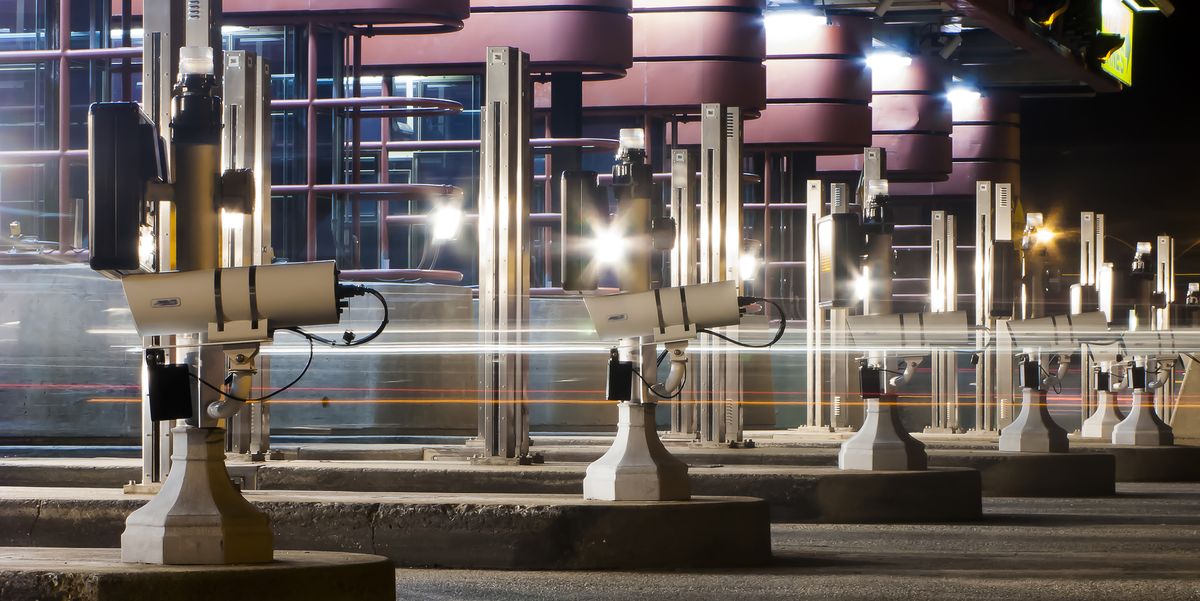
- A discussion about massive data collection by cameras that can automatically read vehicle license plates (LPRs) has been going on for years, but the Wall Street Journal reports that this is one issue that politicians and the public are not talking about enough.
- There are some laws about LPRs, but they’re often relegated to questions about how long law enforcement can keep the data, not if they should be vacuuming up all the information in the first place.
- Both the ACLU and the Electronic Frontier Foundation have been calling on the public to speak out against the practice, saying it can be used to determine much more than when a particular vehicle was in a particular place.
When you’re driving on a public road, your license plate is public information. You could legally sit on your front porch and write down the plate numbers of every car that drives by, then put all of that information into a spreadsheet and track when people leave for work and who gets pizza delivered every Tuesday. One question that isn’t being asked loudly enough, according to the Wall Street Journal, is whether it’s a good idea for the government to automate being such a nosy neighbor.
They’re known as license-plate readers, or LPRs, and it’s not like this technology has been flying completely under the radar. In fact, automatic LPRs have been a subject of contention for about a decade now, ranging from police in Washington, D.C. holding on to automatically collected license plate data in 2011 to the FBI wondering if such data collection was legal in 2012. The Post’s story noted that as long as 10 years ago, one private vendor of the scanners, Vigilant Solutions, already had a database of 450 million plate scans and was adding 35 million new plates per month.
Law enforcement, unsurprisingly, is generally in favor of automatic LPRs. Chicago police said in 2020 that LPRs could help them solve more expressway shootings. In 2018, a Florida sheriff’s office said it used LPRs to recover stolen cars and a person wanted for sex crimes in another state. In a more recent case, the Journal noted, LPRs were used to arrest “a number of suspected rioters” who attacked the U.S. Capitol on January 6.
Cameras used as LPRs can be mounted on stationary infrastructure like traffic lights or on things that move, like police cars or garbage trucks. In 2019, we noted that most states do not have any explicit regulation on LPRs, which means their use was fairly wide open. Things haven’t changed much since then, but the National Conference of State Legislatures has collected a list of state-based laws regarding LPRs. What limits exist usually set maximum length on how long law enforcement agencies can keep LPR data, but not on the original collection. In 2012, the American Civil Liberties Union (ACLU) asked for, and obtained, thousands of documents from local and state police departments related to how this technology is used around the country.
“The documents paint a startling picture of a technology deployed with too few rules that is becoming a tool for mass routine location tracking and surveillance,” the ACLU said on its website. “As the technology spreads, the ACLU calls for the adoption of legislation and law enforcement agency policies adhering to strict privacy principles to prevent the government from tracking our movements on a massive scale.”
The Electronic Frontier Foundation (EFF) takes a similar view, noting that drivers don’t have a choice here. The government requires vehicles to have license plates, and the government is now using that public information to track people.
“Taken in the aggregate, ALPR data can paint an intimate portrait of a driver’s life and even chill First Amendment protected activity,” the EFF said on its website. “ALPR technology can be used to target drivers who visit sensitive places such as health centers, immigration clinics, gun shops, union halls, protests, or centers of religious worship.”
This content is imported from {embed-name}. You may be able to find the same content in another format, or you may be able to find more information, at their web site.
This content is created and maintained by a third party, and imported onto this page to help users provide their email addresses. You may be able to find more information about this and similar content at piano.io
